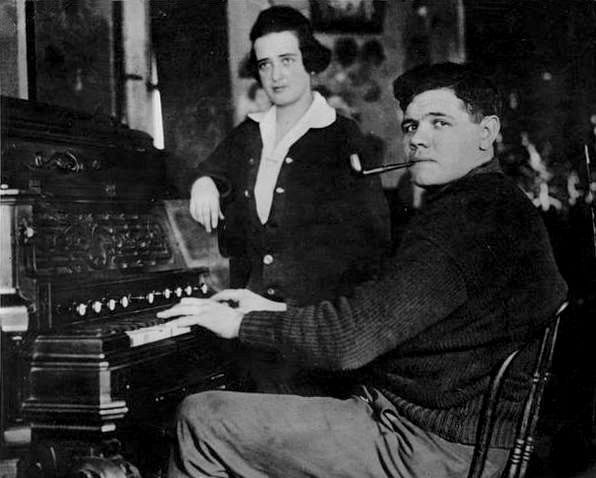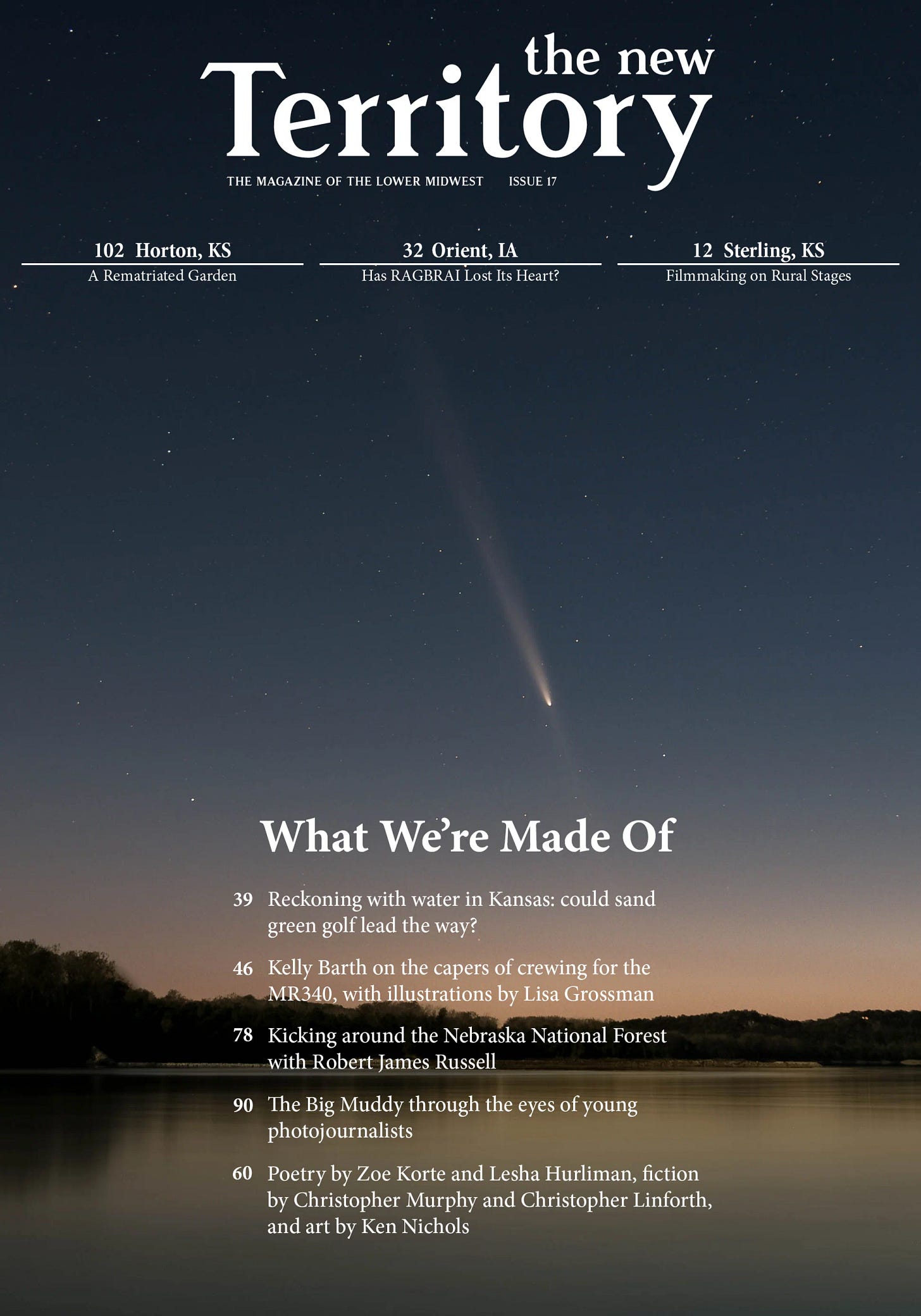Psalm #3
Even in death, the Babe could draw, so
they planted his coffin at the main gate,
opened up the lid, and sold concessions.
For two days they let them all see the
savior, precious oil poured over his head,
formaldehyde thick in his veins. Someone was
hired to swat the flies. Thousands came to lift
up kids to the rim, holding baseballs each that
later were put into attic boxes. On the third
day, he did not rise, but his body was gone,
taken away from the house he’d built by
men in the night. Nevermind that some of
these mourners would decades later mail
threats to Hank Aaron, saying they’d kidnap
his daughter, use a hunting rifle on him
from the nosebleeds if he kept on swinging. No,
no, no. It’s best to ruminate on the King. See
him smoking in that pointed crown, pledging a
finger toward heaven where the next pitch was
headed. Later he appeared to Benny in a VHS
dream saying “Legends never die.” And so it has
always been. I’m straight wrong: America’s pastime
is not all chalkdust real estate, carpet-bombing
neighborhoods to erect monolithic cathedrals
where men attempt to get other men out, forever.
Instead, I like to recite Psalms 133. It starts “How
good and pleasant it is when God’s people live together
in unity!” I read the rest aloud from a page I found
blowing at the edge of a cornfield after harvest. It was
torn, naturally, and it brushed me back a little, holding
names like Aaron and Herman right there together, as if
God always thought home runs were a thing worth
dying over.
-
This poem was originally published in Words & Sports.
ADVERTISEMENTS FOR MYSELF
I’ll be part of the
reading this weekend in Iowa City as part of Mission Creek Festival.Truly gobsmacked to be a part of this thing. I’ll be reading something brand new with some of my favorite writers.
Come watch me blow it. It’s free, and I’m bringing several boxes of Casey’s donuts.
I spent the last few months of 2024 immersed in a fifty-year old bluegrass record. I spent hours on the phone with legends like Jerry Douglas and Ricky Skaggs, and talked to the founders of Rounder Records about how this album changed the face of bluegrass and independent American music.
The result is a kind of oral history of the album from the people who made it, and the folks that it is still influencing today.
You can find it in the latest issue of No Depression.
An abridged version of an essay that I first sent out here, “Rummage Sutra”, will be included in the next issue of The New Territory.
It’s a brilliant magazine, one of the few headquartered in and exclusively covering the Midwest. I’m honored to be a part of it.
Thanks as always for being a part of this.








Such beautiful writing. I saw Ricky Skaggs play in the early 2000's at a high school gym in Marshalltown (I think?). His performance was amazing, except when he'd stop playing and went on and on about how much he loved Billy Graham. Then we would whisper chant from our seats in the top of the bleachers, "Less talk more rock, less talk more rock..."
That sounds like a familiar tale to some other folks I know. We had a great conversation, but this was during an October of what feels like another life.